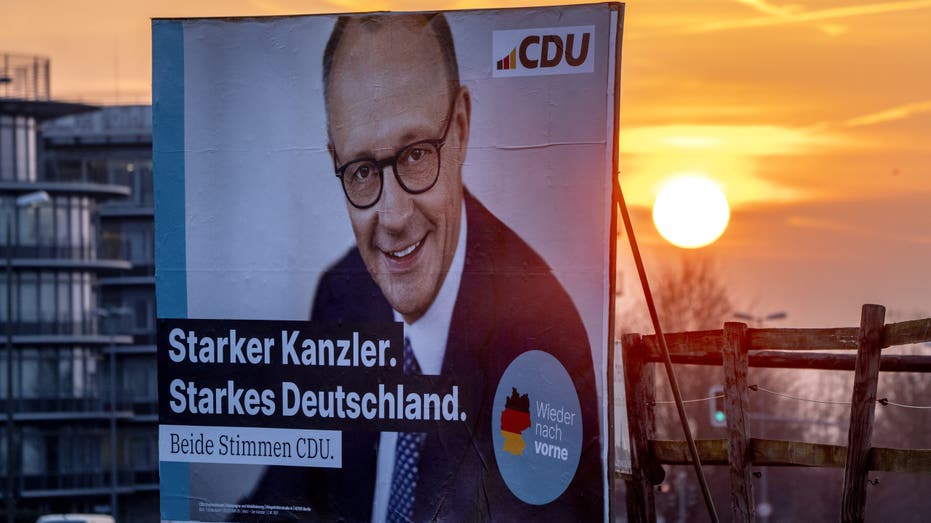Germans go to the polls Sunday as the conservative Christian Democrats, led by Friedrich Merz, are expected to oust current Chancellor Olaf Scholz. But the potential incoming chancellor has already signaled he will not rule with Germany’s right-wing populist Alternative for Germany (AfD) party.
Germany’s election has also caught the attention of Vice President JD Vance and Elon Musk. Musk has championed the AfD as the best political party to fix Germany’s economic woes. Musk’s comments drew the ire of German politicians, and Chancellor Scholz accused the billionaire of interfering in Germany’s elections.
Following a stabbing in Munich on Friday, Musk once again tweeted his support for AfD on X stating, “Only AfD can save Germany.”
Vance met with the leader of the AfD, Alice Weidel, at the Munich Security Conference and criticized the German government’s “firewall” policy of not cooperating with the AfD.
GERMANY ACCUSES ELON MUSK OF TRYING TO INTERFERE IN ITS NATIONAL ELECTIONS
“The main political parties governing Germany have established a ‘firewall’ between themselves and the AfD, which essentially means they refuse to endorse, collaborate with or support far-right parties like the AfD,” Anna Hardage, fellow in European Studies at the American Foreign Policy Council, told Fox News Digital.
The AfD expects to have its best performance in an election, doubling its vote count from 2021, and could become Germany’s second-biggest political party.
GERMANY BRACES UNDER COLLAPSING GOVERNMENT AND LOOMING TRUMP TRADE WAR
If Merz and his Christian Democratic Union (CDU) party refuse to work with the AfD, Germany may end up with a coalition of parties that have fewer shared priorities, except a shared desire to avoid partnering with the AfD.
Hardage noted that while the AfD will most likely be shut out of any governing coalition, the party’s success in mobilizing public opinion means its positions will shape public debates around the biggest issues facing Germany.
AfD has been able to capitalize on the German public’s fears over migration after a spate of violent incidents involving migrants. The party champions stricter immigration laws as the number of migrants across Germany and the EU has soared in recent years from various global conflicts.
The economy, security and immigration are the biggest issues, and they are successful because many voters attribute these big issues to the missteps of past leaders. Rafael Loss, a policy fellow at the European Council on Foreign Relations, told Fox News Digital Merz has moved the CDU to the right on these issues to win back AfD-curious voters.
AfD might find common ground with President Donald Trump’s desire to end the war in Ukraine. The party has called for an end to security assistance to Ukraine and the lifting of sanctions on Russia. Loss said, however, that transatlanticism is at the core of the CDU’s identity, and Merz is convinced that Russia is an existential threat to German and European security, and it remains a priority for Ukraine to emerge victorious.
The sentiment is shared by Merz’s European counterparts.
“Conversations between European leaders of the past weeks, many of whom have also been consulting with Merz, suggest that German and European support for Ukraine will further increase rather than decrease,” Loss said.
Merz’s party has led in the polls for at least three years, with most polls showing a consistent lead for the CDU of around 30%. The election comes after Chancellor Scholz’s “traffic light” coalition fell apart in November over disagreements on fiscal issues.
Economic issues have also led to a deterioration of Scholz’s popularity, and his government struggled to combat the post-pandemic rise in inflation and stagnating growth.
The AfD has faced a barrage of criticism and controversy and was placed under surveillance by Germany’s domestic intelligence agency in 2021 and labeled a suspected right-wing extremist group because some members have reported ties to neo-Nazi groups. The party appealed the designation but was unsuccessful. Björn Höcke, the co-leader of the AfD in the state of Thuringia, and the party’s most prominent member of its extreme right wing, has been convicted several times for using Nazi rhetoric and symbols.
Loss noted that, at the state level, of the 16 AfD state-level organizations, three are being considered as confirmed extremist groups, six are under surveillance as suspected extremist groups and another one is under investigation.
Germany’s Constitutional Court has only banned two political parties since 1949 — the Socialist Reich Party in 1952 and the Communist Party of Germany in 1956.


